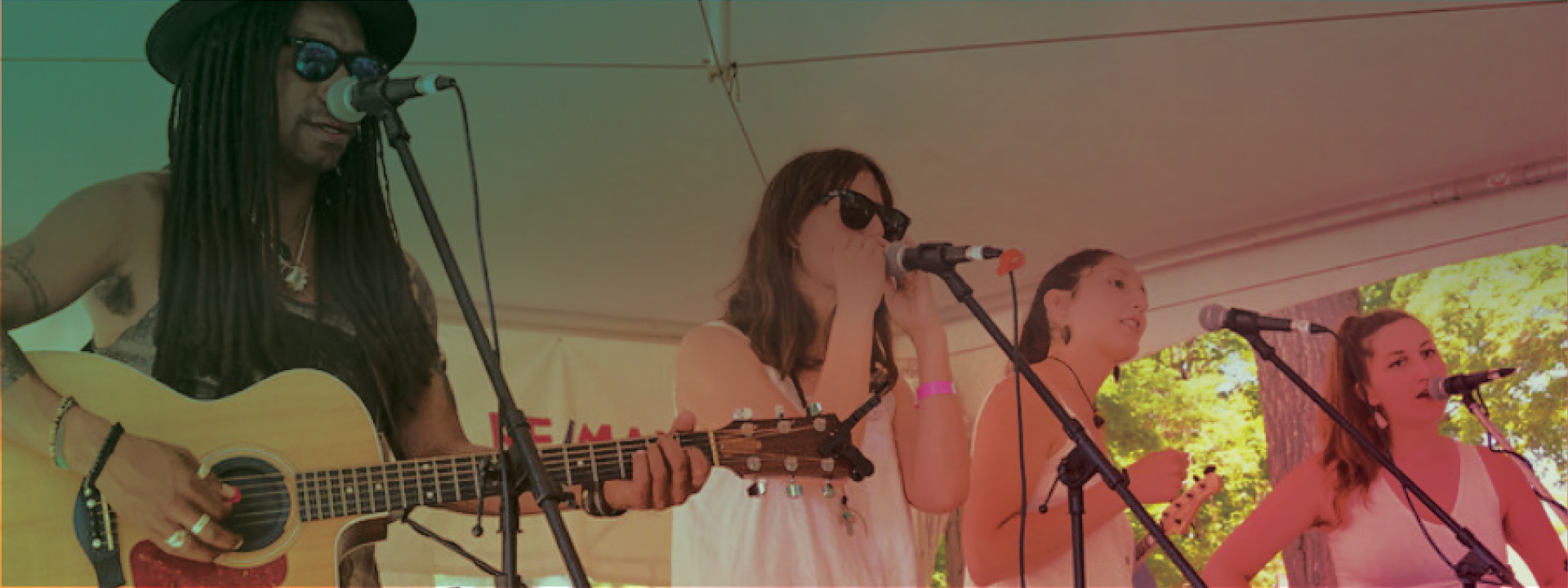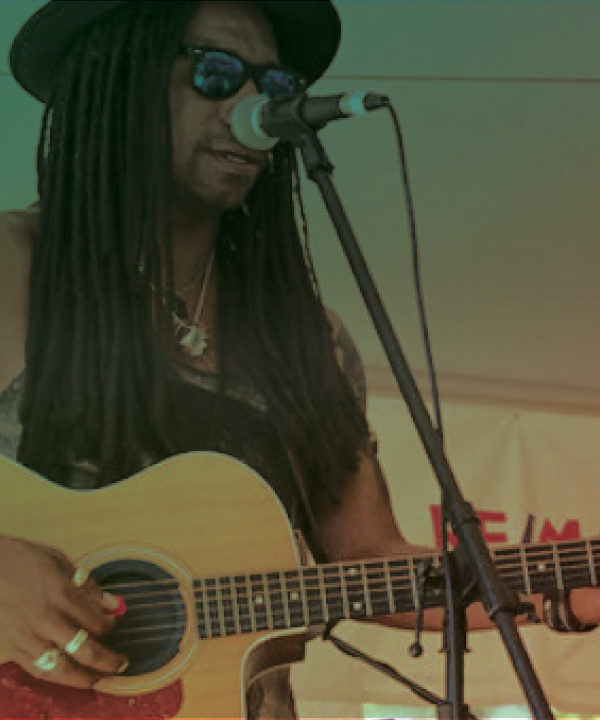The mythology surrounding Estelle Klein, is long and crowded with stories of her masterful handling of nearly every big name in the folk music world.
Some of these stories, though, may be untrue—and that includes the credit she gets for inventing the concept known as the musical workshop. Truth is, the Newport Folk Festival—founded two years prior to Mariposa—also held workshops right from its early days. Nevertheless, Klein’s genius was to put together disparate groups of musicians and mix them into a musical stew that was memorable, unique, and creatively brilliant.

Source: Mariposa Folk Foundation
From its start in 1961, Mariposa advertised symposia as part of the daytime festival programming. By 1964 the workshop concept had caught on. That year Gordon Lightfoot, then a 25-year-old emerging artist, was paired with blues legend Mississippi John Hurt in what was at first glance an unexpected combination of musical styles—a young Canadian singer-songwriter and an aged American blues legend. At Innis Lake a few years later, Lightfoot, Tom Paxton, Owen McBride, Doc Watson, Carolyn Hester, Enoch Kent, Joni Mitchell, and Mike Seeger all participated in a nearly two-hour-long workshop entitled “Ballads and Songs Old and New”. Now that’s what we call a line-up!
In the 1970s Klein introduced an even wider variety of styles and musical samplings, placing musicians in workshops with titles like “International Songs”, “The Many Ways of Telling a Story,” “Peddlers, Sailors and Outlaws”, and “Singing For Dancing”. Often there were tributes to famous songwriters including Bob Dylan, Merle Haggard, Hank Williams; guitar and fiddle workshops; traditional songs performed by the likes of Stan Rogers and the McGarrigle Sisters; Inuit throat singers and Indigenous storytelling; early influences; and old-time gospel sing-alongs.

Source: Mariposa Folk Foundation
Each artistic director who programmed the festival in Klein’s wake continued the tradition of mixing familiar and unfamiliar performers – the famous with the rookies, and the infamous with the memorable. The Good Brothers and The Sadies—an act pairing fathers with their sons and nephews—was a memorable workshop in 2007. A tribute to Gordon Lightfoot that featured a visit from Lightfoot himself—that was incredible. Lightfoot spontaneously getting up and singing along with the acts onstage was a completely magical experience.
As folk festivals proliferated across the country, from Ottawa to Calgary and Canmore to Canso, the events replicated Mariposa’s format. Now every festival, it seems, has workshops designed to allow the public to get up close and personal and hear never-to-be repeated musical combos. Like Mariposa, the musical interactions prove to be the highlight of the festival for many in the audience.

Photo: Norm Betts
Performers benefit and even profit from workshops, too. At a 1974 workshop called “Improvising Lyrics”, Steve Goodman and David Amram performed together. Many months later, Amram was surprised to get a call from Goodman. Goodman had used the words the two performers improvised that summer day on Toronto Island, synthesizing their work into the song “Moby Book”. Goodman recorded the song and gave songwriting co-credit to Amram.
To this day, the Mariposa workshops provide amazing themed entertainment. Whether or not we can truthfully claim them to be invented at Mariposa, for many patrons the festival workshop remains the high point of any festival weekend.

